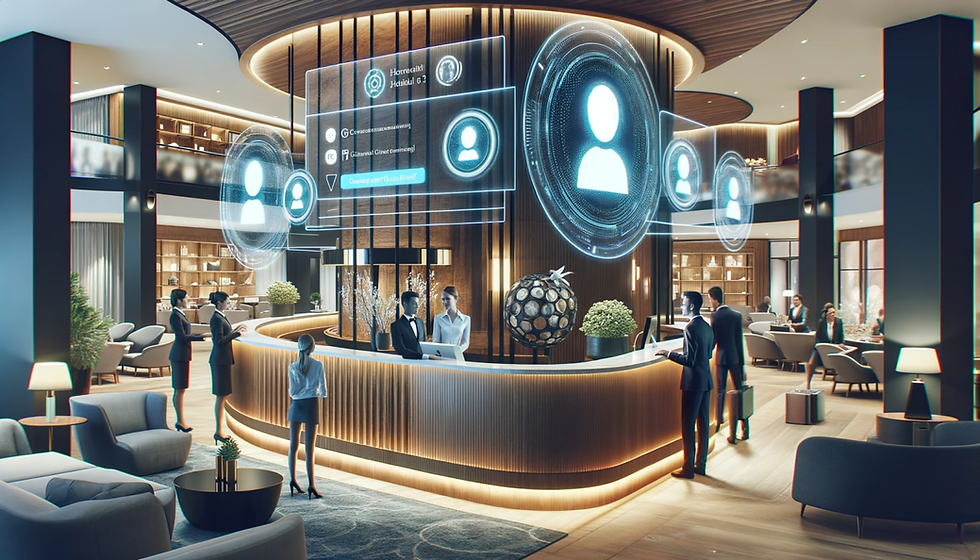Elevating Hotel Management to New Heights: Leveraging GPT-Powered Chatbots for Exceptional Guest Service
- Richard Chandler
- Nov 26, 2024
- 2 min read

Introduction
In the ever-evolving landscape of hospitality, the advent of AI and chatbot technology, particularly those powered by GPT (Generative Pre-trained Transformer), is revolutionizing guest interactions and operational efficiency. This article delves into how hotels can harness these technologies for superior service and management.
The Emergence of Chatbots in Hospitality
Chatbots have become increasingly prevalent in various industries, with their potential in hotel management being particularly noteworthy. These AI-driven tools are reshaping how hotels interact with guests, offering instant, reliable, and efficient communication.
Why GPT-Powered Chatbots Stand Out
GPT, a state-of-the-art language processing AI, enhances chatbots with its deep learning capabilities. It allows chatbots to understand, interpret, and respond to human language with remarkable accuracy, making guest interactions more engaging and natural.
Technical Insights into GPT Chatbots
Advanced Language Understanding: GPT models are trained on vast datasets, enabling them to comprehend and respond to complex queries accurately.
Seamless System Integration: These chatbots can be integrated with existing hotel management software, allowing for synchronized data management and task handling.
Adaptive Learning: GPT chatbots learn from every interaction, continuously improving their responses and functionality, which is crucial for handling the dynamic nature of guest interactions.
Practical Benefits in Hotel Management
Enhanced Guest Interaction: From handling reservations to providing personalized recommendations, these chatbots offer a level of interaction that rivals human customer service.
Operational Efficiency: Automating routine tasks like booking and check-ins frees up staff to focus on more critical, hands-on guest services.
Data-Driven Insights: Chatbots can analyze interactions to offer insights into guest preferences and behavior, aiding in targeted marketing and service improvement.
Implementation Strategies for Hotels
Needs Analysis: Assess which aspects of your hotel's operations could most benefit from a chatbot, such as customer service, bookings, or information provision.
Customization and Brand Alignment: Customize the chatbot to align with your hotel's branding and specific needs, ensuring a consistent guest experience.
Comprehensive Training: Populate the chatbot with diverse scenarios to ensure it is well-equipped to handle real-life guest interactions effectively.
Continuous Improvement: Regularly update the chatbot based on guest feedback and interaction patterns to maintain its relevance and efficiency.
Case Studies: Success Stories in the Hospitality Industry
Illustrating the impact of GPT-powered chatbots, several leading hotels have reported significant improvements in guest satisfaction and operational efficiency since their implementation.
Future Prospects: The Evolving Role of Chatbots in Hospitality
Looking ahead, chatbots are poised to become even more integral to hotel management, with potential expansions into personalized marketing, multilingual support, and integration with IoT devices in hotel rooms.
Conclusion
Adopting a GPT-powered chatbot represents a forward-thinking approach in hotel management, offering unparalleled opportunities for enhancing guest satisfaction and streamlining operations. As the hospitality industry continues to evolve, these advanced AI tools will play a pivotal role in shaping the future of guest services.
A Call to Action for Hospitality Managers:
Now is the time to explore the transformative potential of GPT-powered chatbots in your hotel operations. Embrace this technology to set new benchmarks in guest services and operational excellence, ensuring your hotel remains at the forefront of the hospitality industry.






Comments